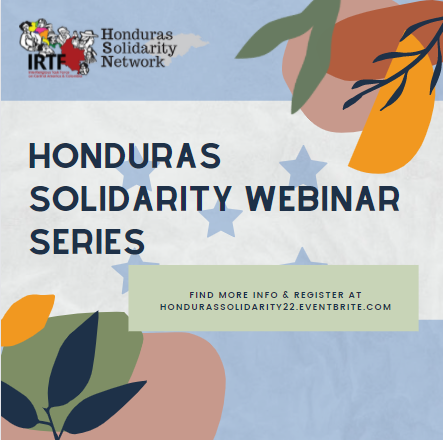As part of the Unearthing the Real Root Causes of Mass Migration from Central America Delegation organized by solidarity organizations this spring, U.S. Congresspeople Ilhan Omar (MN-05), Cori Bush (MO-01), and Jamaal Bowman (NY-16) visited the Fraternal Black Organization of Honduras (OFRANEH). OFRANEH and the three members of the U.S. Congressional Black Caucus made connections about the impacts of the war on drugs, militarization, and state violence in Black communities in Honduras and in U.S. cities alike. Additionally, a delegation from the Miskitu people, who were victims of the May 2012 U.S. Drug Enforcement Administration (DEA) killings in Ahuas, joined OFRANEH in addressing the delegation.
- Home
- About Us
- Issues
- Countries
- Rapid Response Network
- Young Adults
- Get Involved
- Calendar
- Donate
- Blog


